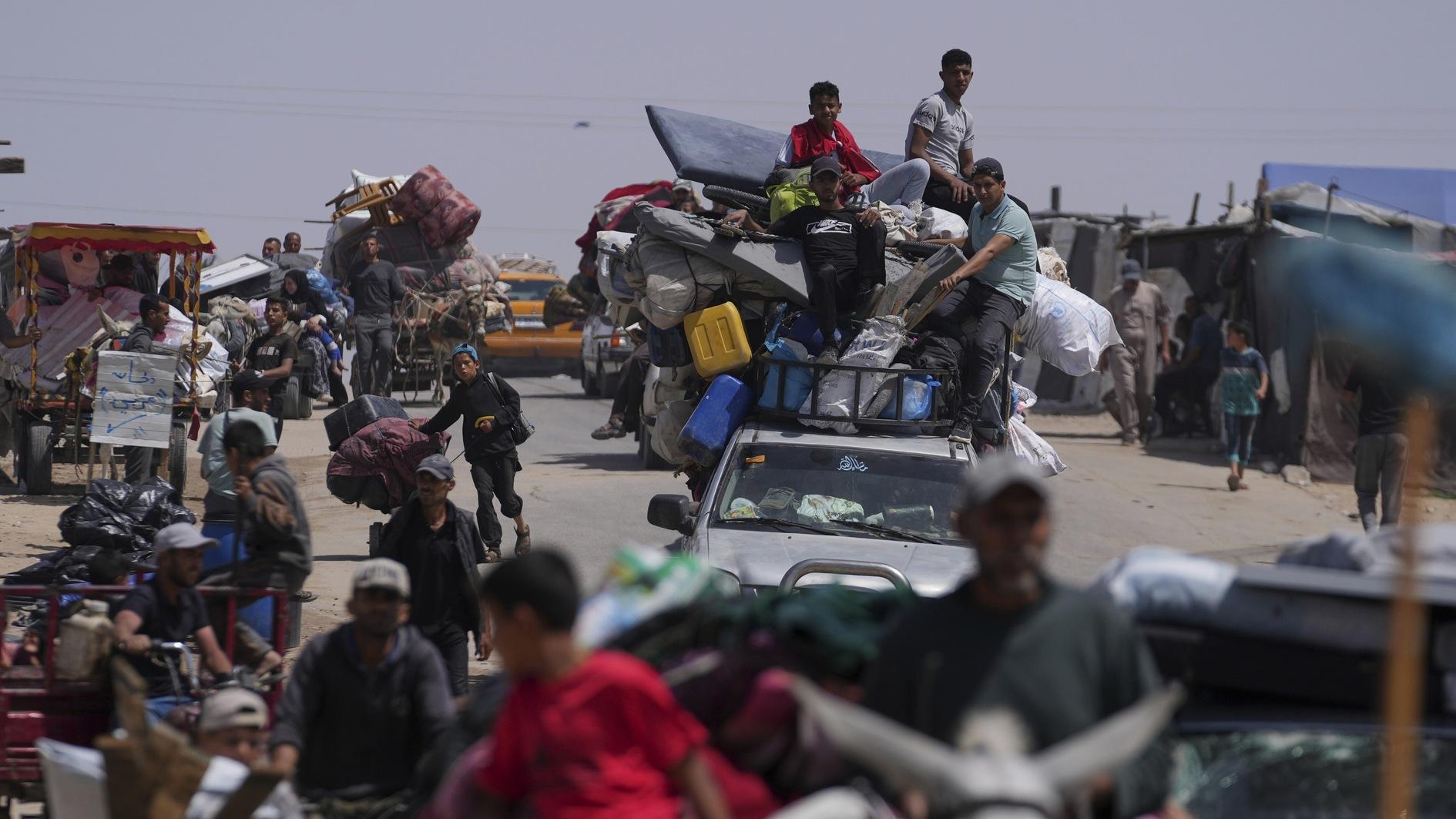
Twenty-two countries, including Australia, Britain, France and Germany, on May 19 demanded that Israel immediately "allow a full resumption of aid into Gaza" after the partial lifting of its blockade on the territory.
The foreign ministers of the key donor countries, who also included Japan and New Zealand, said that "whilst we acknowledge indications of a limited restart of aid, Israel blocked humanitarian aid entering Gaza for over two months."
The statement said that "food, medicines and essential supplies are exhausted" and that "the population faces starvation."
"Gaza's people must receive the aid they desperately need," it added.
The joint statement was released as the United Nations said nine aid trucks were authorised to enter Gaza, describing it as a "drop in the ocean" amid the territory's humanitarian crisis.
The donors' statement also sharply rejected a reported Israeli plan to replace the previous system of aid distribution in Gaza, which Israeli officials have accused of having ties to Hamas.
The statement demanded that Israel "enable the UN and humanitarian organisations to work independently and impartially to save lives".
"We also reiterate our firm message that Hamas must immediately release all remaining hostages and allow humanitarian assistance to be distributed without interference," the statement went on.
The statement was signed by Australia, Canada, Denmark, Estonia, Finland, France, Germany, Iceland, Ireland, Italy, Japan, Latvia, Lithuania, Luxembourg, the Netherlands, New Zealand, Norway, Portugal, Slovenia, Spain, Sweden and the UK.
The statement was also backed by the EU's foreign policy chief Kaja Kallas, the bloc's commissioner in charge of crisis management, Hadja Lahbib, as well as Dubravka Suica, the commissioner for the Mediterranean.
Coinciding with the statement, the leaders of Britain, France and Canada condemned Israel's "egregious actions" in Gaza, opposed its expanded offensive, and slammed Israeli ministers for threatening the mass displacement of civilians.
"We will not stand by" while the government of Benjamin Netanyahu pursues those actions, British Prime Minister Keir Starmer, French President Emmanuel Macron and Canadian Prime Minister Mark Carney said in a joint statement.
"We are committed to recognising a Palestinian state as a contribution to achieving a two-state solution and are prepared to work with others to this end," they said.
The three countries threatened "concrete actions" against Israel, including sanctions for actions in Gaza and West Bank.
Israeli Prime Minister Benjamin Netanyahu on May 19 said that his decision to resume limited aid to the Gaza Strip after a two-and-a-half month blockade came after pressure from allies who said they couldn't support Israel's renewed offensive if there are “images of hunger” coming out of the Palestinian territory.
The announcement raised hope among Palestinians that desperately needed food, medicine and other supplies would enter — but none had by May 19 afternoon.
Israel has meanwhile launched a new wave of air and ground operations across the territory, and the army ordered the evacuation of Gaza’s second-largest city, Khan Younis, where Israel carried out a massive operation earlier in the war that left much of the area in ruins.
On May 18, Israel said it would allow a “basic” amount of aid into Gaza to prevent a “hunger crisis” from developing. Experts have already warned of potential famine if the blockade imposed on the territory's roughly 2 million Palestinians is not lifted.
Israel has stepped up its offensive in Gaza in what it says is a bid to pressure Hamas to release the remaining hostages abducted in the Oct. 7, 2023, attack that ignited the war. Hamas has said it will only release them in exchange for a lasting ceasefire and an Israeli pullout.
Netanyahu said on May 19 that Israel plans on “taking control of all of Gaza,” and establishing a new system to distribute aid that circumvents Hamas. He has also said Israel will encourage what he refers to as the voluntary emigration of much of Gaza's population to other countries.
The aid that would be let in would be “minimal,” Netanyahu had said, and would act as a bridge toward the launch of a new aid system in Gaza, in which a U.S.-backed organization will distribute assistance in hubs that will be secured by the Israeli military.
Israel says the plan is meant to prevent Hamas from accessing aid, which Israel says it uses to bolster its rule in Gaza.
U.N. agencies and aid groups have rejected the plan, saying it won't reach enough people and would weaponize aid in contravention of humanitarian principles. They have refused to take part in it.
An Israeli official said the first shipment would consist of flour, baby food and medical supplies. Eden Bar Tal, the Foreign Ministry’s director general, said the baby food had started entering, without providing further details. There was no sign of any aid on the Gaza side of the border.